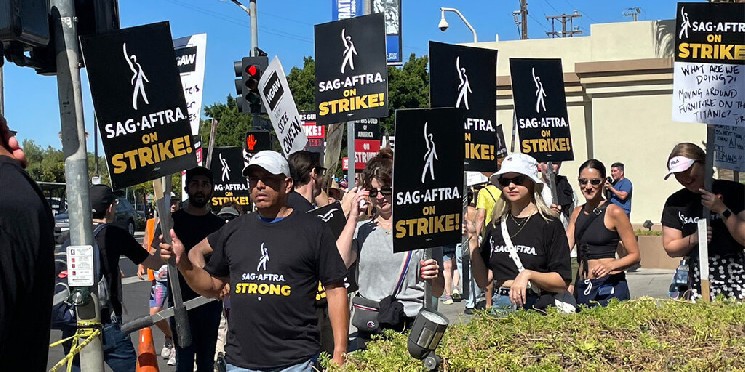Nine major video game studios have recently reached an agreement on artificial intelligence “guardrails” for performers, bringing an end to one of the longest entertainment industry strikes over AI rights. This deal now requires gaming companies to adhere to the same labor standards as traditional Hollywood studios.
The ratification vote, which was officially certified on Wednesday, saw an overwhelming 95.04% of members approve the 2025 SAG-AFTRA Interactive Media Agreement. This agreement not only guarantees an immediate 15.17% pay increase, but also includes three annual raises of 3%. Additionally, it enforces “consent and disclosure requirements for A.I. digital replica use” and grants performers the ability to suspend the generation of new material during a strike.
This landmark deal, which is effective immediately, brings an end to a nearly year-long strike that began in July of last year due to unresolved disputes surrounding generative AI, voice replication, and labor protections within the video game industry.
SAG-AFTRA spokesperson Zeke Alton expressed, “We’re setting a precedent for how the workforce in general, both in the United States and around the world, is going to be treated.”
The new agreement encompasses major studios such as Activision, Electronic Arts, Disney Character Voices, WB Games, and Take 2 Productions. Overtime rates for overscale performers will now be calculated on double scale, with overscale performers receiving payment above the union’s minimum scale rate. Furthermore, health and retirement contribution rates will increase from 16.5% to 17%, and then to 17.5% by October 2026.
Hitesh Bhardwaj, co-founder at Capx AI, emphasized the importance of ensuring that every AI-generated voice or likeness carries cryptographic proof of consent. He stated, “The tooling is ready and we can watermark outputs and anchor them to public ledgers in real time, but unless an independent standards body, not the studios, holds the keys, big tech will keep patching around the rules.”
The negotiations for this deal were contingent on what the negotiating committee chair Sarah Elmaleh described as “strike suspension language,” which prevents AI from replacing striking performers with digital versions of themselves.
SAG-AFTRA had previously gone on strike against film and TV producers from July 14 to November 9, 2023, securing protections for “employment-based digital replicas” created with actor participation and “independently created digital replicas” made from archival footage.
In response to these developments, California state lawmakers passed legislation requiring both consent and estate approval for the commercial use of digital replicas, whether the individual is deceased or alive.
Industry tensions regarding AI threats had been escalating, with Hollywood actors like Robert Downey Jr. and Nicolas Cage speaking out against the technology. However, tensions peaked in May after an AI-generated Darth Vader in Fortnite used offensive language, leading SAG-AFTRA to file charges against Epic’s Llama Productions for using AI voices without union consent.
Under the terms of the new video game contract, companies must now provide advance notice and obtain explicit consent before using AI to replicate performer voices, faces, or movements.
This agreement covers approximately 160,000 SAG-AFTRA members who had been prohibited from working on struck video game projects since July 2024. The resolution of this strike marks a significant achievement in ensuring fair labor standards and protections for performers in the video game industry.

